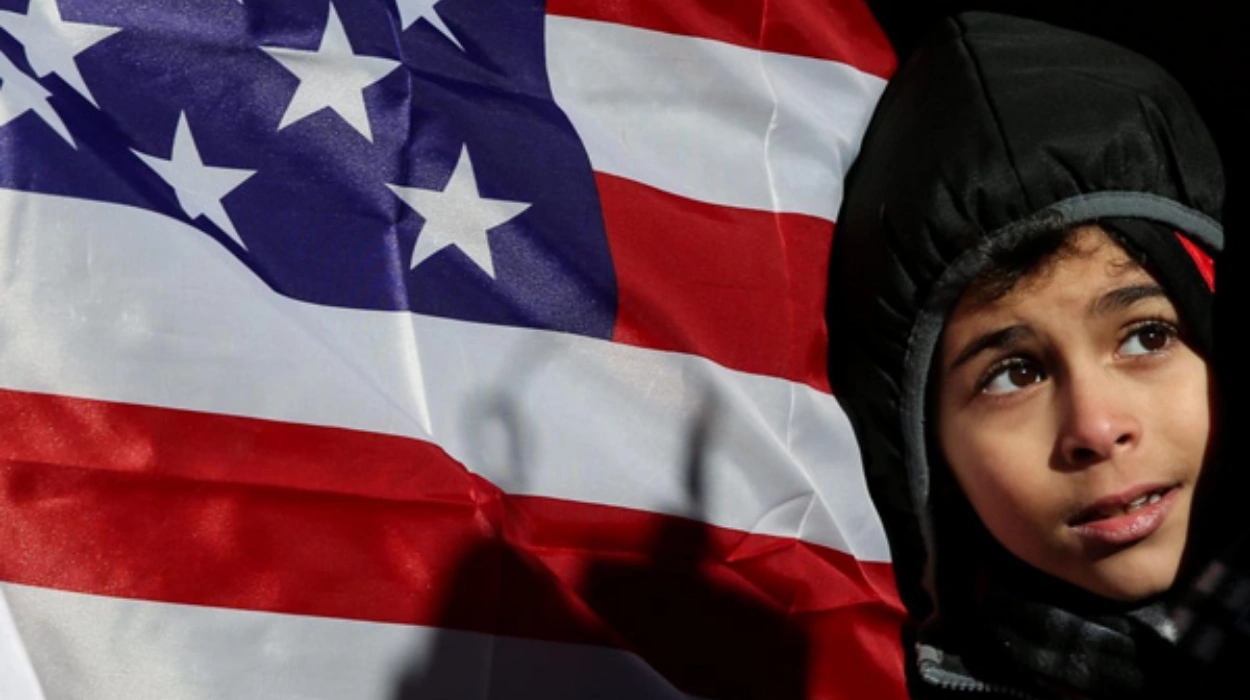On June 4, 2025, President Donald Trump signed a proclamation entitled Restricting the Entry of Foreign Nationals to Protect the United States from Foreign Terrorists and Other National Security and Public Safety Threats. The directive enforces extensive immigration restrictions on 19 countries. Twelve nations—such as Iran, Somalia, Sudan, and Haiti—face comprehensive bans on both immigrant and non-immigrant visas. An additional seven, including Venezuela, Cuba, and Laos, face partial restrictions largely targeting immigrant and student visa categories.
The proclamation has a direct impact on the nationals of countries whose population combined counts more than 475 million. As per the estimations of the U.S. Department of State, the bans are expected to prevent over 34,000 immigrant visas and over 125,000 non-immigrant visas on a yearly basis. Some of the major visas affected are the visas of international students, temporary workers, and family reunification.
Justification and Implementation
The administration uses the reason of national security and failure to adhere to the contractual agreements regarding deportation as critical motives to the bans. The first targets are the nations that have high levels of visa overstaying like in Haiti where the recorded rate was 31 percent of B-1/B-2 overstay. The inclusion is further legitimate within the environment of Iran being a state that sponsors terrorism.
Yet, wider overstay patterns of visas are indicative of inconsistencies. Other nations such as Mexico and Colombia have contributed far more in the total figures of overstays but still not in the prohibited list. Such a difference has caused skeptics to challenge the analytical basis of which the proclamation was made and the actual national security worth of this.
The current visa holders or legal permanent residents are not hindered retroactively by the bans. They however interfere with the intake into the new visa applicants and considerably distort family, academic and work life paths of the nationalities involved.
Security Claims and Strategic Outcomes
National Security Arguments Under Scrutiny
The official rationale asserts that barring nationals from high-risk nations enhances homeland security by minimizing opportunities for terrorism-linked entries. The strategy aims to fortify the immigration vetting process by eliminating perceived vulnerabilities.
Yet a growing number of counterterrorism experts argue the bans are overly broad. They note that nationals from banned countries rarely appear among individuals implicated in U.S.-based terror plots in recent years. Instead, risks tend to be better detected through intelligence-sharing, individual screening, and cross-agency collaboration than through blanket nationality-based restrictions.
The challenge lies in calibrating policy to address actual threats without compromising legal access for peaceful travelers or international cooperation. Broad bans risk discouraging collaboration with foreign intelligence services and damaging rapport with governments essential to transnational security coordination.
Nativism and Profiling Concerns
The argument used by civil society organizations and academicians is that the policy reinstates the concept of exclusionary practices that characterized the previous versions of immigration prohibitions. Many of the affected countries belong to the Muslim-majority or African states, which has brought up the issue of racial and religious profiling.
Skeptics compare the developments with the 2017 travel ban, sometimes called a Muslim ban, which, they argue, is as much political as national security policy. They believe that the policy in place is likely to have a kind of nativism that devalues multicultural integration in favor of native-born citizens and restricts foreign intrusion.
These trends bring up serious questions concerning the transformation of American philosophy of immigration. The national-origin-based exclusions of visas may have the effect of normalization of suspicion and discrimination as a standard practice in other nations and internally.
Economic and Humanitarian Ramifications
Disruption to Education and Skilled Migration
The international students and the scholars in the banned countries are left in confusion. Rebounding is further decline in diversity and tuition income in the colleges and universities of the U.S. which are already facing less enrolments because of visa problems. The Association of International Educators reported that the foreign students in 2024 had an impact of fourty-four billion dollars to the U.S. economy and sustained about three hundred and seventy-eight hundred jobs. The consequences of losing students originating in 19 countries would have an unfair effect on medium-sized institutions and programs that are heavy on research.
Similarly, talented medical, engineering and technology professionals in these nations will not be able to accept opportunities in America, making connections with talented governors to sectors with labor shortages in the United States even more challenging.
Humanitarian Impact and Asylum Restrictions
A number of the prohibited nations have immense humanitarian issues. The civil conflict in Yemen and Sudan and the political crimes in Haiti and Venezuela are all ongoing where individuals of such countries find shelter in the states of the U.S., mostly through asylum or parole programs.
The 2025 proclamation effectively eliminates those pathways. Legal experts warn that blocking migration channels for these groups may force vulnerable individuals into irregular migration or expose them to exploitation. The cancellation of parole programs also affects more than 500,000 individuals, stripping them of legal protections and jeopardizing their futures in the U.S.
The policy’s implications thus extend beyond immigration to questions of human rights and ethical responsibility, particularly for a country historically regarded as a haven for displaced people.
International Reactions and Diplomatic Calculus
Diplomatic Fallout and Global Standing
Governments of affected countries have responded with formal objections and, in some cases, reciprocal travel restrictions. Many view the bans as unjustified, discriminatory, or lacking transparency. This has strained bilateral relations and clouded U.S. diplomacy across Africa, the Middle East, and the Caribbean.
The broader effect on U.S. soft power is notable. The bans send a signal that Washington is retreating from its traditional commitment to openness and internationalism. In multilateral forums, American diplomats face criticism that such moves undercut efforts to build consensus on global migration governance and human rights norms.
As countries such as China and Russia seek to strengthen ties in the Global South, restrictive immigration measures risk weakening America’s comparative appeal and influence.
Evaluating Strategic Outcomes
Analyst Dan Corder has pointed out the multifaceted costs of the bans, observing that the
“U.S. risks undermining both its own security partnerships and the humanitarian leadership it has long championed.”
This evaluation brings to the fore a key contradiction, and that is with effective control of the borders data-driven policy and international collaboration are essential, but not policies that isolate partners or further stigmatize certain communities.
The bans, as politically desirable within some domestic constituencies, perhaps contribute to the prospects of seeing decreasing returns on the security or foreign policy fronts. With the rise in complexity of the global security environment due to the combination of the threats of cybersecurity, state disinformation, and economic coercion, the security protection tools will need an adjustment.
Immigration Policy and America’s 2025 Identity
As the immigration bans that are coming into force in 2025 pass, so do their implications that are far beyond the security considerations. In question is the identity that the United States presents to the rest of the world the image of an open, pluralistic society, or an ever more exclusionary nation. The bans are symptomatic of a broader transformation,that is the trend towards transactional foreign policy and internal priorities which are very serious consequences on how the U.S is managing its role in the world.
This intricate relationship between security, diplomacy, economy and values requires a redefined model of immigration that goes beyond national discriminations against foreigners. Whether the new policies will tend to be sharper remains to be seen but the long-term implications of the current move will certainly be under scrutiny by allies, adversaries, and Americans.





